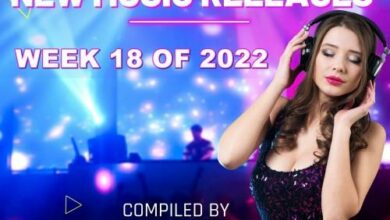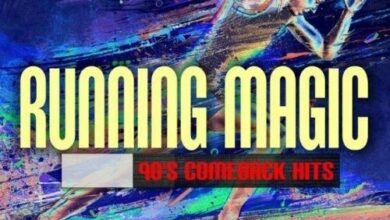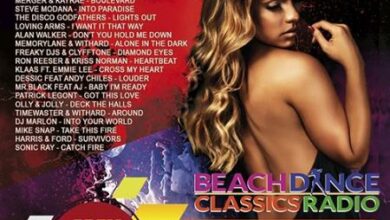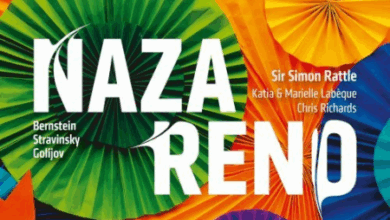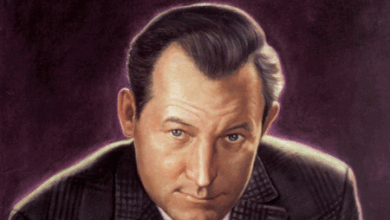VA — Schubert: Classics for Creativity (2022)

FLAC (tracks) / MP3 320 kbps | Classical | 11h 15 min | 2.5 / 1.5 GB
Franz Peter Schubert was among the first of the Romantics, and the composer who, more than any other, brought the art song (lied) to artistic maturity. During his short but prolific career, he produced masterpieces in nearly every genre, all characterized by rich harmonies, an expansive treatment of classical forms, and a segly endless gift for melody. Schubert began his earliest musical training studying with his father and brothers. Having passed an audition, Schubert enrolled at the Stadtkonvikt that trained young vocalists to eventually sing at the chapel of The Imperial Court. Schubert began to explore composition and wrote a song that came to the attention of the institution\’s director, Antonio Salieri, who along with the school\’s professor of harmony, hailed young Schubert as a genius. In 1813, after Schubert\’s voice broke, he returned to live with his father, who directed him to follow in his footsteps and become a schoolteacher. Schubert begrudgingly complied and worked miserably in that capacity by day, while composing prolifically by night. He had written more than 100 songs as well as numerous symphonic, operatic, and chamber music scores, before he reached the age of 20. Schubert finally left his teaching position to dedicate himself completely to musical pursuits. During the summer of 1818, the young composer worked as a private music teacher to the aristocratic Esterhazy family. When he left that post in the fall, Schubert lived a somewhat bohemian lifestyle, composing and spending with a group of friends that acted as his personal support system. In 1820, Schubert was commissioned by two opera houses, the Karthnerthor Theatre and Theatre-an-der-Wein, to compose a pair of operas. He wrote Die Zwillingsbruder, and Zauberharfe, both of which were unenthusiastically received. Schubert failed to secure a contract with a publisher, as none were willing to take a chance on a relatively unknown composer who wrote harmonically untraditional music. Schubert, along with the support of his artistic friends, published his own work for a collection of roughly 100 subscribers. These efforts, however, were financially unrewarding, and Schubert struggled to sustain himself. His work garnered little attention and contemporary composers dismissed his music as presumptuous and immature. In 1823, Schubert was elected to the Musikverein of Graz, as an honorary member. Though this brought no financial reward and was an inconsequential appointment, Schubert relished its slight recognition, and to show his gratitude, composed his famous Unfinished Symphony. Five years later, Schubert\’s music was featured at a concert at Vienna\’s Musikverein. His work was received quite enthusiastically, and to much critical acclaim. This marked the only during the composer\’s life that he enjoyed such success. This seemed to provide Schubert with a renewed sense of optimism, and despite illness, the composer continued to produce at an incredible rate. He began to organize a scheme to increase his artistic popularity, by continuing to evaluate his work and progress as a musician, perhaps even planning to study harmony privately. Schubert\’s health did not improve, and he soon found himself at death\’s door. During the composer\’s last moments, he instructed his brother Ferdinand to ensure that he would be buried alongside Ludwig van Beethoven\’s grave. Schubert revered the legendary composer, and was grateful to him, as Beethoven had praised his work after hearing a selection of songs. Schubert also highly regarded the work of both Franz Joseph Haydn and Wolfgang Amadeus Mozart. Franz Schubert died of syphilis. Despite his short life, Schubert produced a wealth of symphonies, operas, masses, chamber music pieces, and piano sonatas, most of which are considered standard repertoire. He is known primarily for composing hundreds of songs including Gretchen am Spinnrade, and Erlkonig. He pioneered the song cycle with such works as Die Schone Mullerin, and Winterreise, and greatly affected the vocal writing of both Robert Schumann and Gustav Mahler.
[2:18] 1. Ensemble Eduard Melkus — Schubert: 4 komische Landler, D.354
[1:35] 2. Julian Lloyd Webber — Schubert: Wiegenlied, D.498 (Arr. J. Lloyd Webber)
[1:41] 3. Wiener Philharmonic Orchestra — Polka (Schubert: Galopp D.735) (Live)
[1:21] 4. Gil Shaham — Valse No.4
[1:03] 5. Mitsuko Uchida — No.4
[1:54] 6. Esther Yoo — 1. Allegro
[2:34] 7. Pepe Romero — Schubert: Drei Deutsche Tanze — Transcr. Celedonio Romero
[1:49] 8. Mitsuko Uchida — No.12
[2:38] 9. Sheku Kanneh-Mason — Schubert: Ave Maria, D.839 — Arr. Hazell
[2:11] 10. Andras Schiff — Schubert: Grazer Galopp D.925
[1:00] 11. I Musici — No. 2 in F Major (Arranged for String Orchestra)
[1:04] 12. Andras Schiff — No.5
[1:32] 13. Gidon Kremer — Variation I
[1:30] 14. The Chamber Orchestra of Europe — Shepherd\’s Melody
[1:36] 15. Mischa Maisky — No. 19 Tauschung
[1:11] 16. Gil Shaham — Valse (Landler) No.12
[1:01] 17. Andras Schiff — No.2
[0:50] 18. Andras Schiff — No.4
[1:32] 19. Mitsuko Uchida — No.8
[1:01] 20. Mitsuko Uchida — No.1
[1:45] 21. Wiener Philharmonisches Streichquartett — 2. Scherzo: Prestissimo
[2:08] 22. Consortium Classicum — Axa\’s romance
[1:40] 23. Amadeus Quartet — 3. Adagio
[1:38] 24. Gil Shaham — German Dance No. 10
[0:53] 25. Gidon Kremer — 2. In F Major
[0:34] 26. Andras Schiff — No.1
[1:11] 27. Goran Sollscher — Valse (D 365, No.2), Op.9a No.2
[1:34] 28. Mitsuko Uchida — No.2
[0:57] 29. I Musici — No. 4 in G Major (Arranged for String Orchestra)
[1:27] 30. Wiener Philharmonic Orchestra — Galopp (Schubert: Ecossaise No. 1, D.735) (Live)
[0:47] 31. Gil Shaham — German Dance No.2 (D 365, No.19)
[0:44] 32. Gil Shaham — German Dance No.3 (D 365, No.20)
[0:47] 33. Gil Shaham — German Dance No.4 (D 365, No.21)
[0:51] 34. Gil Shaham — German Dance No.5 (D 365, No.6)
[0:52] 35. Gil Shaham — German Dance No.6 (D 365, No.2) \»Trauerwalzer\»
[0:45] 36. Gil Shaham — German Dance No.7 (D 365, No.3)
[0:50] 37. Gil Shaham — German Dance No.8 (D 365, No.4)
[0:43] 38. Gil Shaham — German Dance No.9 (D 365, No.16)
[0:44] 39. Gil Shaham — German Dance No.10 (D 365, No.23)
[0:47] 40. Gil Shaham — German Dance No.11 (D 365, No.7)
[0:44] 41. Gil Shaham — German Dance No.12 (D 365, No.11)
[0:42] 42. Gil Shaham — German Dance No.13 (D 365, No.12)
[0:47] 43. Gil Shaham — German Dance No.14 (D 365, No.9)
[1:06] 44. Mitsuko Uchida — No.2
[0:54] 45. Gil Shaham — Landler (German Dance) No. 3
[1:11] 46. Mitsuko Uchida — No.6
[1:08] 47. Mitsuko Uchida — No.11
[0:49] 48. Gidon Kremer — 4. Deutscher Tanz In F Major
[1:26] 49. Mitsuko Uchida — No.5
[1:47] 50. Joseph Cooper — Schubert: An die Musik, D.547
[0:50] 51. Mitsuko Uchida — No.9
[0:58] 52. Mitsuko Uchida — No.10
[0:56] 53. Gidon Kremer — 4. In G Major
[2:37] 54. Consortium Classicum — Chorus of the Spirits
[2:38] 55. Consortium Classicum — Chorus of the troubadours and knights — Song of Palmerin
[2:05] 56. Aurele Nicolet — Thema. Andantino
[2:20] 57. Aurele Nicolet — Variation III
[2:14] 58. Aurele Nicolet — Variation VI
[2:43] 59. Aurele Nicolet — Variation VII. Allegro
[1:36] 60. Jorg Demus — Schubert: Variation On A Theme By Diabelli: Variation 38
[1:52] 61. Melos Quartet — III. Adagio
[2:37] 62. Evgeny Kissin — Standchen, D. 889 — Transcription: Franz Liszt: Searle 558 No. 9 \»Horch! horch!…\»
[2:30] 63. Goran Sollscher — 4. Zingara. Andantino — Trio
[2:12] 64. Mischa Maisky — Movement Musical in A Minor (No. 3) — Allegro moderato
[2:38] 65. Malcolm Bilson — Largo —
[2:20] 66. Emerson String Quartet — Andante — Allegro assai
[2:02] 67. Gil Shaham — Moment Musical (D 780/3)
[2:35] 68. Gil Shaham — Valse No.3
[2:03] 69. Lang Lang — No. 3 Allegro moderato
[1:59] 70. Claudio Arrau — Allegretto moderato
[2:50] 71. Hermann Prey — Liebesbotschaft
[2:02] 72. Mitsuko Uchida — No.6
[2:07] 73. Mitsuko Uchida — No.1
[2:11] 74. Clifford Curzon — No. 5 in F Minor (Allegro vivace)
[2:13] 75. London Symphony Orchestra — Schubert: Moment Musical In F Minor, D.780 No. 3 (Live)
[2:31] 76. Radu Lupu — No.5 in F Minor (Allegro vivace)
[2:37] 77. Lynn Harrell — Schubert: An die Musik, D.547 (Arr. Cello & Piano)
[2:34] 78. Arthur Grumiaux — 3. Menuetto (Allegro)
[2:45] 79. Arthur Grumiaux — 3. Menuetto (Allegro vivace)
[2:39] 80. Arthur Grumiaux — Standchen
[2:42] 81. Arthur Grumiaux — 3. Menuetto
[2:49] 82. Arthur Grumiaux — 4. Allegro moderato
[2:00] 83. Alfred Brendel — No.5 in F minor (Allegro vivace)
[2:10] 84. Claudio Arrau — No.3 in F Minor (Allegro moderato)
[2:42] 85. Orchestra Of The 18th Century — 3. Menuetto (Allegro vivace)
[2:34] 86. Lazar Berman — Der Leiermann
[2:19] 87. Lazar Berman — Tauschung
[2:53] 88. Vladimir Ashkenazy — Wohin (Arr. Piano)
[2:50] 89. Aurele Nicolet — Introduktion. Andante
[2:46] 90. Music Lab Collective — Standchen (arr. piano)
[2:50] 91. Gidon Kremer — Introduktion. Andante
[1:53] 92. Gidon Kremer — Thema. Andantino
[1:57] 93. Gidon Kremer — Variation II
[2:41] 94. Gidon Kremer — Variation III
[1:50] 95. Gidon Kremer — Variation IV
[1:57] 96. Gidon Kremer — Variation V
[2:16] 97. Gidon Kremer — Variation VI
[3:13] 98. Gidon Kremer — Variation VII. Allegro
[3:26] 99. Radu Lupu — 1. Allegro moderato
[3:28] 100. Evgeny Kissin — Allegro
[3:02] 101. Daniel Hope — An die Musik, D. 547
[3:14] 102. Wilhelm Kempff — II. Andante
[3:15] 103. Melos Quartet — III. Menuetto: Allegro vivace
[3:02] 104. Nathan Milstein — I. Andante
[2:59] 105. Consortium Classicum — Ouverture before Act 3
[2:56] 106. Wilhelm Kempff — No. 5 Allegro vivace
[2:51] 107. Music Lab Collective — Schubert: Ave Maria, D. 839
[3:09] 108. Martha Argerich — 2. Marcia: Andante con moto (Live)
[3:32] 109. Andras Schiff — 3. Menuetto: Allegro vivace — Trio
[3:29] 110. Academy of St. Martin in the Fields — 2. (Andante con molto)
[3:27] 111. Radu Lupu — 2. Andante
[2:58] 112. Academy of St. Martin in the Fields — 3. Menuetto (Allegro vivace)
[3:35] 113. Malcolm Bilson — Marche Militaire In G, Op. 51 No. 2
[3:33] 114. Szymon Goldberg — 1. Andante molto
[3:29] 115. Melos Quartet — IV. Presto
[3:17] 116. Academy of St. Martin in the Fields — 3. Menuetto (Allegro vivace)
[3:13] 117. Arthur Jussen — Schubert: No.1 in D Minor (4 Polonaises, Op.75, D.599)
[2:58] 118. Katia & Marielle Labeque — 2. Largo
[3:23] 119. Orchestra Of The 18th Century — 3. Menuetto (Vivace)
[3:13] 120. Amadeus Quartet — 3. Menuetto. Allegro vivace
[3:33] 121. Hagen Quartett — 3. Scherzo (Allegro molto)
[3:08] 122. Gidon Kremer — 1. Andante
[3:14] 123. Ingrid Haebler — 4. Scherzo con trio (Allegro)
[3:24] 124. Alfred Brendel — Schubert: Hungarian Melody in B Minor, D.817
[3:14] 125. Melos Quartet — IV. Presto
[3:14] 126. Mischa Maisky — Schubert: An die Musik, D. 547 (Op. 88/4)
[3:04] 127. Daniel Smith — Schubert: Serenade (arr. Cohn)
[3:07] 128. Paul Badura-Skoda — 2. Largo
[3:31] 129. Andras Schiff — 4. Scherzo con Trio: Allegro/Piu tardo
[3:13] 130. Consortium Classicum — Melodrame
[3:20] 131. Consortium Classicum — Romance of Palmerin
[3:03] 132. Melos Quartet — IV. Presto
[3:04] 133. Daniel Hope — Schubert: Auf dem Wasser zu singen, Op. 72, D.774
[3:06] 134. Lazar Berman — Wohin
[3:21] 135. Academy of St. Martin in the Fields — 2. Allegretto
[2:56] 136. Academy of St. Martin in the Fields — 1. (Allegro vivace)
[3:07] 137. Arthur Grumiaux — 1. Allegro molto
[2:54] 138. Melos Quartet — III. Menuetto. Allegro
[2:52] 139. Melos Quartet — III. Menuetto and Trio — Allegretto
[3:16] 140. Alfred Brendel — 3. Menuetto (Allegro)
[3:11] 141. Academy of St. Martin in the Fields — 4. (Presto)
[3:03] 142. Evgeny Kissin — Schubert: Die Forelle, D.550 (Op.32)
[3:19] 143. Emil Gilels — 4. Thema — Andantino — Variazioni I-V — Allegretto (Snippet)
[3:29] 144. Gidon Kremer — 1. Deutscher Tanz — Trio I — Trio II In C Major
[3:32] 145. The Chamber Orchestra of Europe — Entr\’acte No. 2
[2:58] 146. Arthur Jussen — Schubert: No.2 in B-Flat Major (4 Polonaises, Op.75, D.599)
[3:41] 147. Arthur Grumiaux — 1. Allegro giusto
[3:53] 148. Arthur Grumiaux — 3. Allegro vivace
[4:02] 149. Goran Sollscher — 5. Tema con variazioni Thema. Moderato (after a song by Friedrich Fleischmann) — Var. I — V
[4:05] 150. Arthur Jussen — Schubert: No.3 in E Major (4 Polonaises, Op.75, D.599)
[4:13] 151. Arthur Grumiaux — 2. Andante
[3:45] 152. Orchestra Of The 18th Century — 3. Allegro
[4:02] 153. Andras Schiff — 3. Menuetto: Allegro vivace — Trio
[4:16] 154. Andras Schiff — 1. Allegro moderato
[4:11] 155. Gil Shaham — Serenade (Standchen D 957/4)
[3:53] 156. Gidon Kremer — 5. In C Major
[4:20] 157. Academy of St. Martin in the Fields — 1. Adagio — Allegro moderato
[4:01] 158. Grumiaux Trio — 3. Menuetto (Allegretto)
[3:42] 159. Signum Quartett — Schubert: Du bist die Ruh\’, Op.59/3, D.776 (Arr. by X. van Dijk for String Quartet)
[4:14] 160. I Musici — No. 5 in C Major (Arranged for String Orchestra)
[3:58] 161. Gidon Kremer — 1. In C Minor
[3:53] 162. Arthur Grumiaux — 2. Andante
[4:02] 163. Mitsuko Uchida — 2. Andante
[4:08] 164. Melos Quartet — II. Andante
[4:18] 165. Arthur Grumiaux — 4. Allegro
[3:41] 166. Arthur Grumiaux — 4. Allegro vivace
[4:14] 167. Nicola Benedetti — Schubert: Serenade (\»Standchen\» No. 4 from Schwanengesang D. 957)
[3:44] 168. Kian Soltani — Schubert: Nacht und Traume, D. 827 (Version for Cello and Piano)
[3:50] 169. Arthur Grumiaux — 3. Andantino
[4:09] 170. Melos Quartet — III. Menuetto: Allegro vivace
[3:38] 171. Wiener Philharmonisches Streichquartett — 3. Scherzo (Allegro molto)
[4:05] 172. Mischa Maisky — No. 6 Der Neugie
[3:46] 173. Radu Lupu — 3. Menuetto: Allegro vivace — Trio
[3:37] 174. Andras Schiff — 2. Andante
[3:53] 175. Gidon Kremer — 1. Andante molto
[3:55] 176. Boston Symphony Orchestra — 2. Ballet Music No. 1 — Andante un poco assai
[4:16] 177. Vladimir Horowitz — III. Scherzo. Allegro vivace con delicatezza
[4:00] 178. Jorge Bolet — Schubert: Rosamunde, D.797 (Arr. Godowsky)
[4:25] 179. Kian Soltani — 2. Adagio
[4:11] 180. Wiener Philharmonic Orchestra — II. Allegretto (Live)
[4:13] 181. Alicia de Larrocha — 2. Andante
[3:59] 182. Consortium Classicum — Chorus of the knights
[4:02] 183. Arthur Grumiaux — 2. Andante
[3:55] 184. Mischa Maisky — Schubert: Litanei auf das Fest Allerseelen, D. 343
[4:20] 185. Lynn Harrell — Schubert: Nacht und Traume, D.827 (Arr. Cello & Piano)
[3:42] 186. Ilana Vered — 4. Allegro
[3:45] 187. Academy of St. Martin in the Fields — 3. Menuetto (Vivace)
[3:27] 188. Stuttgarter Kammerorchester — 5. in C Major
[4:26] 189. Alfred Brendel — Schubert: Allegretto in C minor, D.915
[3:48] 190. Martha Argerich — 2. Adagio (Live)
[3:46] 191. I Musici — No. 1 in C Minor (Arranged for String Orchestra)
[3:57] 192. Arthur Grumiaux — 4. Allegro moderato
[3:42] 193. Arthur Grumiaux — 2. Andante
[4:00] 194. Alfred Brendel — 3. Scherzo (Presto)
[3:49] 195. Alfred Brendel — 3. Scherzo (Allegro vivace con delicatezza)
[4:17] 196. Hagen Quartett — 2. Andante con moto (Excerpt)
[3:50] 197. The Lindsays — 3. Scherzo (Allegro molto) — Trio
[3:53] 198. Evgeny Kissin — Gretchen am Spinnrade, Op.2, D.118 — Transcription: Franz Liszt: Searle 558 No.8
[3:51] 199. Alfred Brendel — Schubert: 11 Ecossaises, D.781
[4:08] 200. Lang Lang — IV. Allegro (Live)
[3:51] 201. Arthur Grumiaux — 2. Scherzo (Presto)
[4:10] 202. Wilhelm Kempff — I. Allegro moderato
[3:43] 203. Maurizio Pollini — IV. Allegro
[4:07] 204. Alicia de Larrocha — 3. Scherzo (Allegro vivace con delicatezza)
[3:47] 205. Amadeus Quartet — 4. Presto
[3:47] 206. Jorge Bolet — 4. Allegro
[4:14] 207. Concentus Musicus Wien — Schubert: 5 Tanze aus 16 Deutsche Op. 33
[3:57] 208. Takacs Quartet — 3. Scherzo (Presto)
[4:17] 209. Arthur Grumiaux — Ave Maria
[4:07] 210. Radu Lupu — 3. Allegro
[3:59] 211. Mischa Maisky — Schubert: Der Einsame, D.800
[3:49] 212. Arthur Grumiaux — 3. Allegro vivace
[3:52] 213. Henryk Szeryng — 4. Allegro vivace
[4:17] 214. Wilhelm Kempff — No. 1 in B-Flat Major: Allegretto
[3:52] 215. Melos Quartet — II. Menuetto
[4:10] 216. Anatol Ugorski — 4. Allegro
[4:11] 217. Wiener Philharmonic Orchestra — III. Menuetto (Vivace) (Live)
[3:53] 218. Wilhelm Kempff — III. Menuetto: Allegro vivace — Trio
[3:36] 219. Gidon Kremer — 2. Deutscher Tanz — Trio I — Trio II In G Major
[4:11] 220. Melos Quartet — IV. Allegro
[3:52] 221. Heinz Holliger — Romance (Arr. for Oboe and Harp)
[4:12] 222. Jaap Schroder — 3. Andantino
[4:12] 223. Mitsuko Uchida — 2. Andante
[4:27] 224. Arthur Grumiaux — 1. Allegro molto
[4:26] 225. Berliner Philharmoniker — 4. Presto. Vivace
[3:42] 226. Wilhelm Kempff — IV. Allegro
[4:10] 227. Melos Quartet — III. Andante
[3:43] 228. Arthur Jussen — Schubert: No.4 in F Major (4 Polonaises, Op.75, D.599)
[3:52] 229. Gil Shaham — 2. Adagio
[3:53] 230. Evgeny Kissin — Auf dem Wasser zu singen, D.774 — Transcription: Franz Liszt, Searle 558 No. 2
[4:01] 231. Mischa Maisky — No. 24 Der Leiermann
[3:46] 232. Wilhelm Kempff — IV. Scherzo con trio (Allegro)
[4:10] 233. Krystian Zimerman — III. Scherzo (Allegro vivace con delicatezza)
[4:23] 234. Berliner Philharmoniker — 3. Menuetto (Allegro molto)



